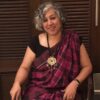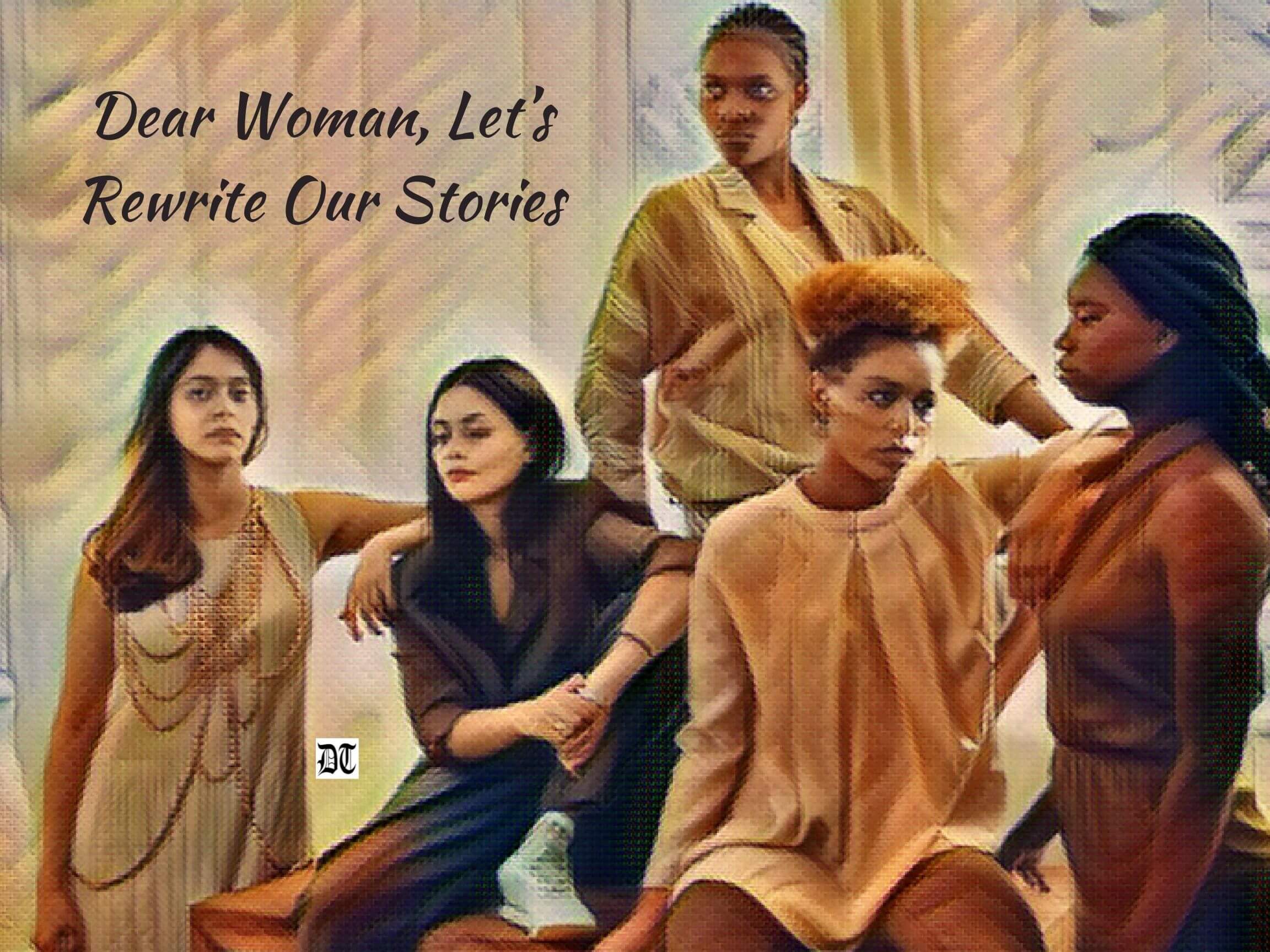A matriculate, Malathy used to work in a garment mill for seven years after she got married. But, the mill shut down and she had to stop working. Now, she sells towels and hankies on a pavement of Chennai. Shail talks to her during her working hours and documents a slice of oral history. She is among the millions of people who live on the streets of India. The author shall profile Streetlives with compassion, every Monday, exclusively for Different Truths.
“There has never been a meaningful life built on easy street.” ~ John Paul Warren, Raise Your Mind.com
“Are you trying to make fun of me? Do you know what it means to be without money? With that pen in hand are you trying to show off that you are better educated than me? I too have studied. 10th pass. After that I got married and now, for the past so many years, I am wasting my life here.”
That was Malathy, a spunky woman. On my way to buy vegetables and fruits, I come across her once a week deeply engrossed, seated on a chair, with newspaper in hand. The first time I saw her, I casually passed her by but, paused after I noticed that she had earphones plugged in her ears. One part of me smirked thinking, she is earning her living selling cheap towels, handkerchief and shirts on the pavement and yet, she refuses to forgo the joy of hearing music. Typical attitude of most people who are better off than street dwellers at least financially. The other part of me reprimanded for not showing some empathy. If given a choice, would the woman be sitting on the road in full gaze of the entire world? No. So, why should she be denied little joys only because she had to make a living on the streets?
 How often have we volunteered to take a walk on the street instead of using a car, a bike or a taxi? We have this preconceived notion about how life is on the streets and prefer to not be a part of it. Street lives are not easy. They are not comfortable either. As an observer one perceives several things when one walks on the road. It is only when we set foot on the streets that they call home that we realize what real life is all about.
How often have we volunteered to take a walk on the street instead of using a car, a bike or a taxi? We have this preconceived notion about how life is on the streets and prefer to not be a part of it. Street lives are not easy. They are not comfortable either. As an observer one perceives several things when one walks on the road. It is only when we set foot on the streets that they call home that we realize what real life is all about.
Life on the streets is one of constant struggle. Just as famous journalist and critic, H.L. Mencken says, “Life is a dead-end street,” we need to realise that street life maybe filled with things that we usually shield ourselves against but, that does not mean that life cannot be lived with self-respect just because one happens to live on the streets or earns one’s living out there.
Every time I saw Malathy, I wanted to talk to her. But, I hesitated for fear of trespassing on her privacy.
“Privacy? What privacy do these people have?” one might ask.
It is due to this kind of insensitivity amongst us that such street lives are knifed before they can even aspire to live a better existence.
When I asked Malathy as to why she was not working elsewhere since she had studied till tenth standard, do you know what she told me?
“Why do you want to know? What will I gain by telling you?”
The silence from my side was deafening.
“I was working,” she suddenly continued, “in a garment mill for seven years after I got married. But, the mill shutdown and I had to stop working.”
Before she could speak any further, a burly moustached man came near her and she immediately got up from her chair. I sensed that it could be her husband observing his aggressive and authoritative gait.
“What does this Amma want?” he asked of her.
Both Malathy’s and my eyes met. I hastily picked up a hand towel and gave it to the man.
“Yevalu ithu?” I asked of him. (How much is this?)
“25” he said in the local tongue.”
I paid him and hastily beat my retreat.
Next time, when I walk past her, will I look at her? I do not know. Would she recognize me in pain or, will she want to continue where we left? I do not know again. Even if she did, will it make any difference to her life? Will it motivate her to dream bigger dreams? Will it help her get rid of any feeling of envy she might have for not being in my place? Will it help us to become friends?
I do not have an answer for that either. But, somewhere deep within I seem to connect with the survivor spirit in her for wanting to live her life with self respect despite all odds.
“The street is the river of life of the city, the place where we come together, the pathway to the center,” said William H. Whyte, organisational analyst, journalist and people-watcher.
©Shail Raghuvanshi
Pix by Vinod Naraen





 By
By
 By
By
 By
By
 By
By